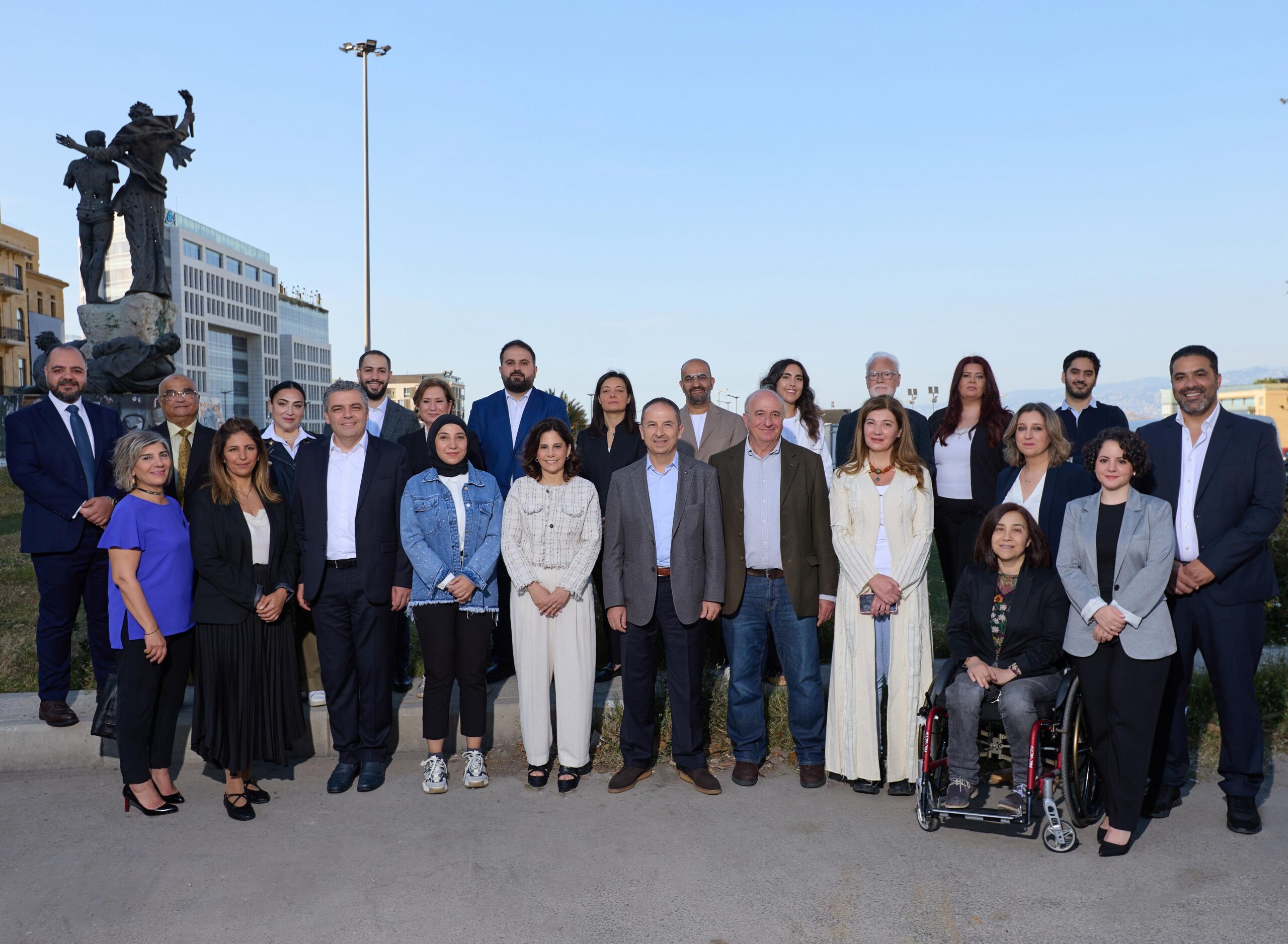Yesterday, May 7, organizers and candidates gathered in Martyrs’ Square, Beirut, to announce the launch of the Beirut Madinati Coalition 2025 list. The list will take part in the Beirut municipal elections, set to take place in 10 days on Sunday, May 18.
The campaign borrows the name from the 2016 Beirut Madinati campaign that emerged in April 2016 and ran in the Beirut municipality elections of that year. Both campaigns are known to include pro-change political organizers and candidates, independent from mainstream political parties.
This year, the campaign’s launch includes members from various alternative political groupscoming together to form a full list of 24 members. The list is comprised of the following names: Amal Charif, Soha Mneimneh, Zeina el Mukaddam, Mounir Mabsout, Fadi Darwish, JihaneRizk, Ghina el Kassem, Mazen el Houssami, Antoine al Raheb, Marie Daou, Marc Tueini, Lama Wazzan, Sarah Mahmoud, Levon Talvasian, Kristy Asseily, Ihab Hammoud, Anita Wartanian, Pierre Wartanian, Najwa Baroody, Lina Jarrous, Bilal Ramadan, Paula Rbeiz, Riad Arnaout and George Kiriakos.
The launch was attended by a number of pro-change Members of Parliament (MPs) and organizers, such as MPs Ibrahim Mneimneh and Melhem Khalaf (MPs from Beirut), Firas Hamdan, Paula Yaacoubian, Najat Saliba and many others.
Reclaiming the City
The launch included a number of speeches, including brief introductions and interventions from the candidates themselves.
The content of the campaign launch focused on a series of social, political, legal and economic issues. It challenged the weaponization of sectarian speech by dominant political groups in Lebanon ahead of major political events.
The speeches highlighted the importance of tackling chronic issues of disregard and corruption in Beirut. The speeches also addressed the need to tackle a variety of issues, including housing, the city’s openness, and its centrality in heritage, culture, and arts. The speakers put forward essential services such as healthcare, transportation, public spaces and the environment and atransparent governance free from favoritism.
In the speech of the head of the list, Fadi Darwich, the candidate stated that people have the choice to decide between two options: a path of corruption, favoritism, and quotas, or a path of transparency, accountability, and planning.
Challenges Ahead
In 2016, Beirut Madinati faced a list of logistical and political obstacles in their campaign, particularly the coalescing of mainstream political parties – even those presumably opponents – to stop the list from achieving a breakthrough. Despite such challenges and an inability to break through on paper, the campaign still managed to score a significant number of votes for a campaign that is unaffiliated to mainstream political parties, marking a precedent.
This year, mainstream political parties are also expected to come together to prevent the Beirut Madinati Coalition 2025 from achieving victory, not to mention the potential formation of other independent yet locally prominent lists.
In the North and Akkar, pro-change organizers are also gearing up for the upcoming municipal elections, set in three days on Sunday, May 11. This includes campaigns such as “Bcharre Together Stronger” (Bcharre Sawa Akwa) in the town of Bcharre in North Lebanon.
The campaign includes organizers of previous electoral and political efforts, such as George Taouk, a leading figure in the pro-change Shamalouna parliamentary campaign in Northern Lebanon, which achieved a breakthrough with one victorious candidate.
The municipality elections remain a strong challenge for the pro-change movement and general aspirations for change in the country as a whole. Unlike parliamentary positions, which have mostly legislative and monitoring mandates, municipalities have local, executive powers that allow them to enact visible reforms that land direct impressions on local communities. In turn, they have a notable impact on citizens’ trust vis-à-vis whoever holds such positions.


